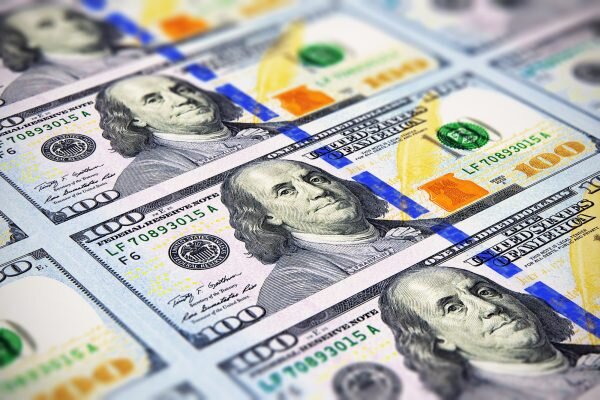U.S. admits what everyone already knew about “dollar hegemony”

TEHRAN- The U.S. Treasury Secretary says Washington’s sanctions on countries have put the greenback's “hegemony” at risk.
Janet Yellen told CNN that “there is a risk when we use financial sanctions that are linked to the role of the dollar that over time it could undermine the hegemony of the dollar."
Yellen also claims that economic sanctions are “a very effective tool” before backtracking again by admitting “it does create a desire on the part of China, of Russia, of Iran to find an alternative."
She also claims it's not easy to replicate the ecosystem that supports the U.S. dollar, alleging that it would be challenging to replicate the currency's dominance as the international reserve currency.
Critics beg to differ.
Yellen has made mistakes in her remarks and the U.S. Treasury is fully aware of that. Her implicit message to the Biden White House is that having such a large sanctions regime is harmful to the U.S. economy. It creates tensions with other countries including trading partners of America.
It is not just China, Russia and Iran that are turning their back on the U.S. dollar in trade transactions and creating a new economic system to challenge the dollar as the international reserve currency.
Just over the past year, the unprecedented sanctions on Russia have spectacularly backfired on the dollar.
The sanctions have not had the desired effect as they have not convinced Moscow that the war would be too costly. It sent a message to the rest of the world, which is that you cannot trust the dollar or the United States.
The seizure of $350 million dollars of Russian assets in U.S. banks made it clear that any country that keeps its money in America is at risk of losing it if you cross the so-called rules-based order. Iraq found that out the hard way with its funds held in the Federal Reserve in violation of the country’s sovereignty and territorial integrity.
The risk which the U.S. faces and that Yellen alluded to is the rising power of the Chinese currency Yuan.
What the world is witnessing is how de-dollarization is picking up swift momentum. They are turning their backs on SWIFT and seeing sanctions for what they are: a weapon of warfare.
In South America, Brazil’s President Luiz Inacio Lula da Silva was the latest Latin American leader to slam the U.S. dollar during his trip to China where he took extra measures to expand a Chinese-backed Development Bank.
The new bank is an alternative to the International Monetary Fund and World Bank, both under the grips of the U.S. and both of which impose harsh loan conditions that nations around the world have condemned as punitive and disruptive to their economic recovery.
In Beijing Lula hit out at the dominance of the U.S. dollar in international trade, hailing the signing of the major agreements between Brazil and China to use the Chinese yuan in their bilateral commerce.
The five emerging and leading market economies - Brazil, Russia, India, China and South Africa - known as the BRICS bloc are promoting the idea that there is so much trade volume between them. They no longer need to rely on the dollar.
There were some structural steps that needed to have been taken such as currency swaps, trading with their own banks cooperating in each market and have commodity markets based outside the United States Contrary to Yellan’s claims that it's not easy to replicate the ecosystem that supports the U.S. dollar, BRICS has been doing all this over the past decade or so to make this functional for all these countries to start trading in their own currencies. It might be a slow process, but it’s a working process that did lead up to the BRICS setting up the New Development Bank that could eventually wipe out the U.S. dollar as the international reserve currency.
Yellan was careful not to mince her words and say that sanctions should be dropped altogether, but she is pointing out to the Biden administration that sanctions are no longer working.
In a meeting with the Persian Gulf Cooperation Council leaders, President Xi Jinping said China “will continue to import large quantities of crude oil on a long-term basis from (member states of the council) and purchase more LNG” and the Shanghai Petroleum Exchange “will be fully utilized for RMB (Yuan) settlement in oil and gas trade.”
Saudi Arabia and China have already held talks for Riyadh to export oil to China in Yuan for the first time instead of the dollar.
India is among the many other countries that has pushed for a new foreign trade policy and has taken steps to support international trade using its rupee currency instead of the dollar.
The Iranian government, like several others, has already ditched the U.S. dollar altogether. The move came after Tehran was subjected to unprecedented U.S. sanctions.
The U.S. has weaponized its dollar through sanctions. Experts say that many more countries have realized that using the dollar in trade or relying on it as “an international reserve currency” will one day subject them to U.S. sanctions and undermine their own national economy. Think tanks have been speaking of de-dollarization for more than a decade now.
